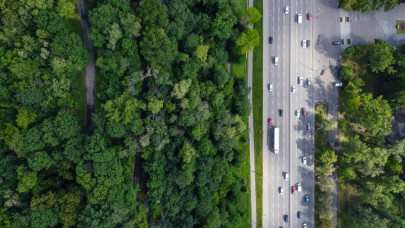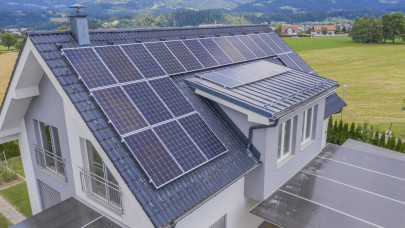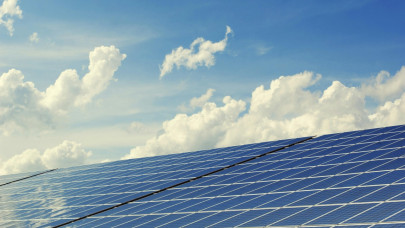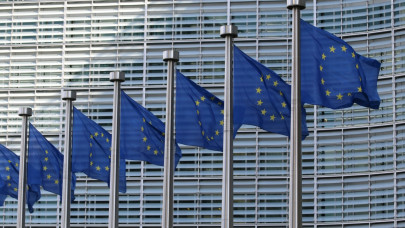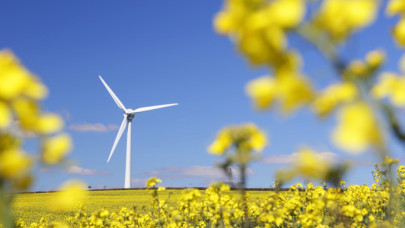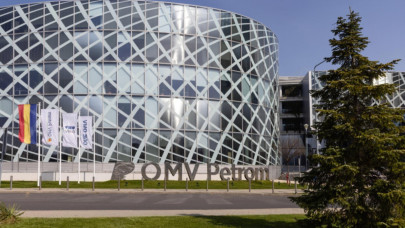Food waste is a major concern for food retailers. Beyond packaging reduction initiatives, what concrete steps is Auchan Romania taking to minimize food waste throughout its supply chain and in its stores?
As a food retailer, combating food waste is one of our priorities. We address this challenge through concrete, innovative, and measurable initiatives that have a significant impact on both the environment and the community. One of our key projects in this regard is Zero Waste (Zero Risipă), an intelligent solution based on artificial intelligence that allows for careful monitoring of stock and the management of products close to their expiration date.
Through this program, over the past four and a half years, we have saved more than 22 million products together with our customers, preventing the generation of over 2,500 tons of CO₂ emissions while offering customers high-quality products at reduced prices. At the same time, the system helps store teams optimize operational efficiency and reduce losses, thus integrating sustainability principles into the day-to-day business model.
We also have Happy Hour programs for the Gastro, bakery, and pastry areas.
Currently, we are working on preparing the launch of a new innovative internal process based on artificial intelligence for the Fruits and Vegetables department.
Does Auchan Romania have any specific programs in place to encourage and incentivize its suppliers to adopt more sustainable practices in areas like packaging or agricultural methods?
Yes, we have clear and active initiatives to support our suppliers in adopting sustainable practices, especially regarding packaging and agricultural methods.
Beyond the aforementioned project, our commitment to combating food waste also involves our suppliers and partners. For this reason, we are a partner of the Sustainability Academy, an educational initiative developed by Social Innovation Solutions, aimed at supporting entrepreneurs and managers in their transition to sustainable practices. It offers free courses, resources, and concrete case studies from the Romanian market, tailored to the current needs of businesses. Through this partnership, we aimed to actively collaborate by providing expertise, best practice examples, and strategic support. Additionally, we have developed a sustainability course specifically for supply chains in the retail industry, accessible to producers, entrepreneurs, and retail professionals. This course includes educational modules with clear objectives, such as reducing food waste, lowering the carbon footprint across the entire production, distribution, and sales chain, expanding the network of local producers and partners, and developing the circular economy.
We also continuously work with our suppliers to adapt the product range. Some concrete examples in this regard include Auchan-branded toys made from wood, paper, or cardboard that are FSC (Forest Stewardship Council) certified, plush toys made from 100% recycled polyester, and our own-brand Christmas ornaments made entirely from recycled plastic.
Regarding sustainable agriculture, our main focus is the Auchan Supply Chains program – a strategic initiative through which we collaborate directly with local producers to support responsible, traceable, and high-quality agriculture. With over 90 supply chains currently in place, products are developed in partnership with more than 50 Romanian farmers, based on strict standards of quality, food safety, and environmental respect.
In essence, all our initiatives are aimed at reducing environmental impact through decarbonization and promoting a circular economy.
Through our partnership with the Climate Change Summit, we aim to raise awareness and share best practices regarding climate change and our role in the supply chain to combat it, providing our suppliers with the tools they need to join us on this journey. Additionally, last year we organized the first Climate Supplier Event, which was dedicated to discussions about common decarbonization measures and transforming business models to meet climate goals. We shared our plans with partners and expressed our desire to provide them with the necessary support to make the decarbonization process of their businesses as smooth as possible.
At the same time, in our fight against plastic pollution, it is essential to mobilize and involve all stakeholders at every level of a product's lifecycle. Through our plastic policy, we guide our suppliers in transforming their packaging to minimize environmental impact wherever possible.
What do you see as the primary challenge for Auchan Retail Romania in the near and mid-term regarding its sustainability goals, particularly those related to the supply chain?
If we refer to last year, 2024 brought numerous opportunities, but also significant challenges for the sustainability sector. One of the most notable was the implementation of the CSRD directive regarding corporate sustainability reporting. We approached this subject not as an obstacle, but as a step towards strategic evolution. The implementation of the CSRD directive provided us with the necessary framework to strengthen the collection of non-financial data with direct economic impact, thus facilitating a rethinking of our business model and redirecting investments towards sustainable initiatives, such as energy efficiency projects.
At the same time, one of the biggest challenges for Auchan Retail Romania is the decarbonization of the supply chain, especially in Scope 3 of the 2030 Climate Plan, namely indirect emissions.
More than five years ago, we started an accelerated decarbonization process, both in-store operations, through reduced energy consumption and refrigerant gas use, and with products, alongside our partners and customers. Therefore, for Scope 1 and 2, which refers to refrigerant gas and energy, we aim to reduce emissions by 46% by 2030, compared to the reference year of 2019.
For Scope 3, which includes products, transportation, and other categories, we aim to reduce emissions by 25% by 2030, compared to 2020. For over three years, we have started a continuous logistics optimization process, which includes both improving truck loading rates and optimizing routes. Currently, we are using an electric truck for deliveries to certain proximity stores and are constantly connected to the latest technologies in the field.
What are Auchan's long-term sustainability ambitions for Romania?
We have clear and ambitious long-term objectives, anchored in the 2030 Climate Plan, certified by the Science Based Targets Initiative (SBTi). We aim to reduce direct emissions by 46% by 2030 (compared to 2019) and to use only renewable energy by the same year. Already, over 18,000 photovoltaic panels have been installed on the roofs of 16 hypermarkets, generating 10.4 GWh annually and covering up to 20-30% of energy consumption.
At the same time, we continuously and actively invest in developing responsible retail, which prioritizes providing all customers with access to essential products for daily life at affordable prices and under fair conditions. We support the local economy (90% of food products are Romanian) and promote social inclusion by making stores accessible for people with disabilities.
How does the integration of technology and digitalization aid in the establishment of circular supply chains and further sustainability objectives?
Technology plays a crucial role in the sustainable transformation of our operations. In addition to the Zero Waste solution and the Packtool application, we have developed and implemented digital systems that optimize the supply chain, reduce stock surplus, improve product traceability, and facilitate intelligent resource management.
The ongoing digitization process will enable real-time data collection and is essential for analyzing environmental impact and making informed decisions. Furthermore, the energy monitoring systems being implemented, along with the smart waste management system, have directly contributed to the progress towards our efficiency and circularity goals.
We aim to continue demonstrating that sustainability can create new value and that transforming our current business model remains a priority. Through investments, partnerships, and innovation, we are shaping a business model that can address the climate and social challenges of both the present and, especially, the future.


